Best Books On Writing Short Stories
T he first story I wrote outside of school was about Irish boxer Barry McGuigan. I was 10 and I loved Barry. He'd just lost his world featherweight title to the American Steve Cruz under the hellish Nevada sun and the only thing that could mend my broken heart was a restoration of my hero's belt. Months passed and there was no talk of a rematch, so I wrote a story about it.
My imagined fight was in Ireland, and I was ringside. In my story I'd arranged the whole thing. I'd even given Barry some tips on countering Steve's vicious hook. It went the distance but Barry won easily on points. He hugged Steve. His dad sang "Danny Boy". I felt as I finished my story an intense relief. The world in that moment was restful and calm. I'd created a new reality for myself, and I was able to occupy it for a while, to feel a joy I'd created by moving a biro across paper. I think of that story now every single time I sit down to write. I strive for the feeling of rightness it gave me, that feeling of peace.
It took me a while to regain that feeling. When I left school, where I was lucky enough to be roundly encouraged and told with conviction that I was a writer, I inexplicably embarked on a career of self-sabotage, only allowing my literary ambitions to surface very sporadically, and then burning the results in fits of disgust. Nothing I wrote rang true; nothing felt worthy of being read.
Shortly after I got married my mother-in-law happened upon a file on the hard drive of a PC I'd loaned her (there's a great and terrifying writing prompt!). It contained a ridiculous story about a young solicitor being corrupted by a gangster client. I'd forgotten about the story, and about one of its peripheral characters, a simple and pure-hearted man named Johnsey Cunliffe. My wife suggested giving Johnsey new life, and I started a rewrite with him as the hero; the story kept growing until I found myself with a draft of my first finished novel, The Thing About December. I didn't feel embarrassed, nor did I feel an urge to burn it. I felt peace. I knew it wouldn't last, and so I quickly wrote a handful of new stories, and the peace didn't dissipate. Not for a while, anyway.
So a forgotten short story, written somewhere in the fog of my early 20s, turned out to be the making of my writing career. Maybe it would have happened anyway, or maybe not, but I think the impulse would always have been present, the urge to put a grammar on the ideas in my head. Mary Costello, author of The China Factory, one of the finest short story collections I've ever read, says: "Write only what's essential, what must be written … an image or a story that keeps gnawing, that won't leave you alone. And the only way to get peace is to write it."
I know that in this straitened, rule-bound, virus-ridden present, many people find themselves with that gnawing feeling, that urge to fashion from language a new reality, or to get the idea that's been clamouring inside them out of their imagination and into the world. So I've put together some ideas with the help of some of my favourite writers on how best to go about finding that peace.
Don't worry
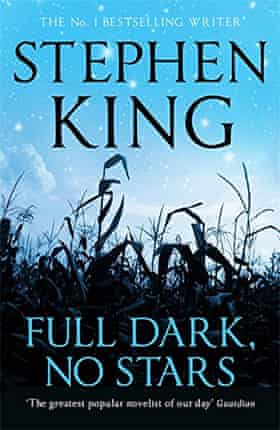
In a short story, the sentences have to do so much! Some of Chekhov's stories are less than three printed pages; a few comprise a single brief paragraph. In his most famous story, "The Lady with the Dog", we are given a detailed account of the nature, history and motivations of Gurov within the first page, but there is no feeling of stress or overload. Stephen King's 2010 collection Full Dark, No Stars is a masterclass in compression and suspense. My colleague in creative writing at the University of Limerick, Sarah Moore Fitzgerald, is, like me, a novelist who turns occasionally to the short form. Sarah considers short stories to be "storytelling's finest gifts. In the best ones, nothing is superfluous, their focus is sharp and vivid but they can be gloriously elliptical too, full of echoes." The novel form, as I've heard Mike McCormack say, offers "a wonderful accommodation to the writer", but the short story is a barren territory. There's nowhere to hide, no space for excess or digression.
My wife asked me once why this worried me so much. I'd just published my first two novels and had embarked on a whole collection of short stories, A Slanting of the Sun. She'd come home from work to find me curled up in a ball of despair. "Every sentence worries me," I whined. "None of them is doing enough." "Don't worry about how much they're doing until all the work is done," she said. "Get the story written, and then you can go back and fix all those worrisome sentences. And the chances are, once the story exists, you won't be as worried about those sentences at all. They'll just be."
Ah. I can still feel the beautiful relief I felt at her wise words. Life is filled with things to worry about. The quality of our sentences should be a challenge and a constant fruitful quest, a gradual aggregation of attainment. But creativity should always bring us at least some whisper of joy. It should be a way out of worry.
Get it out
One of the concepts my colleague Sarah illuminates is that of a "draft zero" – a draft that comes before a first draft, where your story is splashed on to your screen or page, containing all or most of its desired elements. Draft zero offers complete freedom from any consideration of craft or finesse.
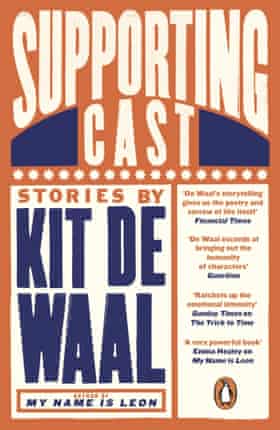
Kit de Waal, who recently published a wonderful collection, Supporting Cast, featuring characters from her novels, offers this wisdom on getting your story from your head on to your page or screen: "Don't overthink but do overwrite. Sometimes you see a pair of gloves or a flower on the street or lipstick on a coffee cup and it moves you in a particular way. That's your prompt right there. Write that feeling or set something around that idea, you don't know what at this stage, you're going off sheer muse, writerly energy, so just follow it. And follow it right to the end – it might be a day, a week, a year. Overwrite the thing and then sit back and ask yourself, 'Where is the magic? What am I saying? Who is speaking?' When you've worked that out, you have your story and you can start crafting and editing."
Your draft zero is Michelangelo's lump of rough-hacked marble, but with David's basic shape. It is the reassuring existence of something tangible in the world outside of your mind, something raw and real, containing within its messy self the potential for greatness. And the best way to make it great is to make it truthful.
Be truthful
I don't mean by this that you need to speak your own truth at all times or to draw only on your own lived experience, but it's important to be true to our own impulses and ambitions as writers; to write the story we want to write, not the story we think we should write. That's like saying things that you think people want to hear: you'll end up tangling yourself in a knot of half-truths and constructed, co-opted beliefs. You'll be more politician than writer, and, as good and decent as some of them are, the world definitely has enough politicians.
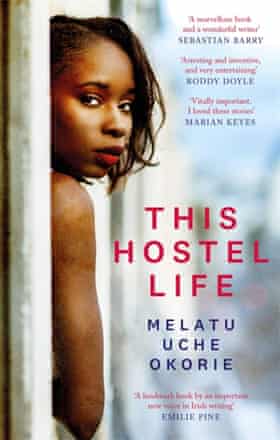
Your own experiences, of course, your own truth, can be parlayed into wonderful fictions, and can by virtue of their foundation in reality contain an almost automatic immediacy and intensity. Melatu Uche Okorie's debut collection, This Hostel Life, is drawn from her experiences in the Irish direct provision system as an asylum seeker. The title story in particular has about it a feeling of absolute truthfulness, written in the demotic of the author's Nigerian countrywomen; while another story, "Under the Awning", feels as though it might be an oblique description of events witnessed or experienced first-hand by the author.
Take risks
You might as well do exactly what you want to do, even (or especially) if it's never been done before. You have nothing to lose by taking risks, with form, content, style, structure or any other element of your piece of fiction. Rob Doyle, a consummate literary risk-taker, exhorts writers to "try writing a story that doesn't look how short stories are meant to look – try one in the form of an encyclopaedia entry, or a list, or an essay, or a review of an imaginary restaurant, sex toy, amusement park or film. Have people wondering if it's even fiction. Mix it all up. Short stories can explore ideas as well as emotions – huge ideas can fit into short stories. For proof, read the work of Jorge Luis Borges. In fact, I second Roberto Bolaño's advice to anyone writing short stories: read Borges."
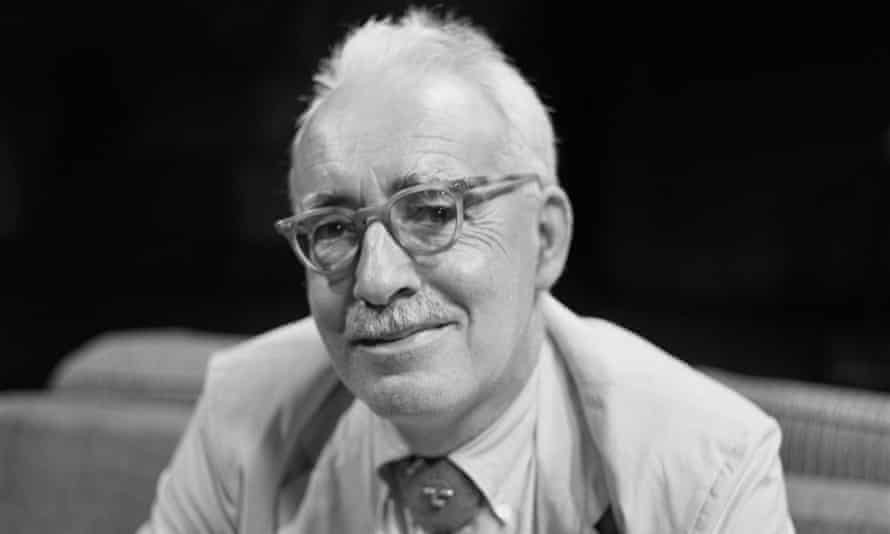
Bend the iron bar
"When the curtain falls," said Frank O'Connor of the short story, "everything must be changed. An iron bar must have been bent and been seen to be bent." One of the first short stories to break my heart was O'Connor's "Guests of the Nation". It has been described as one of the greatest anti-war stories ever written, and one of the finest stories from a master of the form. Its devastating denouement closes with this plaintive statement from the shattered narrator: "And anything that happened to me afterwards, I never felt the same about again." This line contains within it an entreaty to short story writers to reach for that profound moment, that event or epiphany or reversal or triumph; to arrive within the confines of their story at a moment that will have a resonance far beyond its narrow scope.
Another great literary O'Connor, this time the novelist Joseph, who teaches creative writing at the University of Limerick, says that "to me every excellent short story centres around an instant where intense change becomes possible or, at least, imaginable for the character. Cut into the story late, leave it early, and find a moment." Joseph quotes the closing words of one of his favourite short stories, Raymond Carver's "Fat": "It is August. My life is going to change. I feel it."
The moment of course needn't be in the ending, and the end of a story doesn't necessarily have to be incendiary or revelatory, or to contain an unexpected twist. Mary Gaitskill's story "Heaven" describes a family going through change and trauma and loss, and iron bars are bent in almost every paragraph, but its ending is memorable for the moment of relief it offers, in a gently muted description of the perfect grace of a summer evening and a family gathered for a meal. "They all sat in lawn chairs and ate from the warm plates in their laps. The steak was good and rare; its juices ran into the salad and pasta when Virginia moved her knees. A light wind blew loose hairs around their faces and tickled them. The trees rustled dimly. There were nice insect noises. Jarold paused, a forkful of steak rising across his chest. 'Like heaven,' he said. 'It's like heaven.' They were quiet for several minutes."
Listen to your story
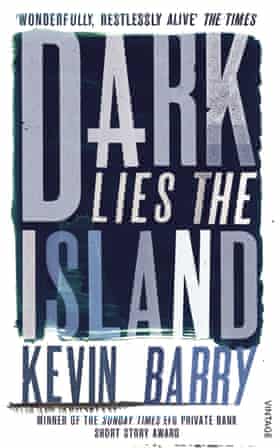
"Beer Trip to Llandudno", Kevin Barry's masterpiece of the short form, from his 2012 collection Dark Lies the Island, is another story that has remained pristine in my consciousness since I first read it. Part of the magic of that story, and of all Barry's work, is its dialogue: the earthy, pithy, perfectly authentic exchanges between his characters. When I asked Kevin about this, he said: "If you feel like you're coming towards the final draft of a story, print it out and read it aloud, slowly, with red pen in hand. Your ear will catch all the evasions and the false notes in the story much quicker than your eye will catch them on the screen or page. Listen to what's not being said in the dialogue. Very often the story, and the drama, is to be found just underneath the surface of the talk."
Such scrupulous attention to the burden carried by each unit of language and to the work done by the notes played and unplayed can make a story truly shine. Alice Kinsella is an accomplished poet who recently turned her hand to the short form in great style with her sublime account of early motherhood, "Window". "Poetry or prose," Alice says, "the aim is the same, to make every word earn its place on the page."
Ignore everything
And as self-defeating as this sounds, here's a final piece of advice: once you sit down to write your story, forget about this article. Forget all the advice you've ever been given. Free your hand, free your mind, cut yourself loose into the infinity of possibility, and create from those 26 little symbols what you will. We came from the hearts of stars. We are the universe, telling itself its own story.
-
Donal Ryan is a judge for the BBC national short story award with Cambridge University. The shortlist will be announced on 10 September and the winner on 19 October. For more information see www.bbc.co.uk/nssa.
Books for budding short story writers
By Chris Power
If short story collections occupy a minority position on publishers' lists, books about the short story are an even scarcer commodity. In the 1970s the academic Charles E May published Short Story Theories, which he followed up in 1994 with The New Short Story Theories. These volumes, out of print but easy enough to find second-hand, collect some of the key texts about short fiction, from Edgar Allan Poe's 1842 review of Nathaniel Hawthorne's Twice-Told Tales, to Elizabeth Bowen's tracing of Guy de Maupassant and Anton Chekhov's influence, and Julio Cortázar's brilliant lecture Some Aspects of the Short Story ("the novel always wins on points, while the story must win by a knockout").
Frank O'Connor's The Lonely Voice (1963) studies 11 great story writers, from Ivan Turgenev to Katherine Mansfield, and argues that the quintessential short story subjects are outsiders: "There is in the short story at its most characteristic something we do not often find in the novel – an intense awareness of human loneliness." O'Connor's assertiveness makes disagreeing with him part of the fun. As his countryman Sean O'Faolain wrote: "He was like a man who takes a machine gun to a shooting gallery. Everybody falls flat on his face, the proprietor at once takes to the hills, and when it is all over, and you cautiously peep up, you find that he has wrecked the place but got three perfect bull's-eyes."
I have a similar relationship with George Saunders's remarkable study of seven classic Russian short stories, A Swim in a Pond in the Rain, published earlier this year. I don't buy the overarching argument about fiction generating empathy, but this is a book stuffed with arresting observations and practical tips from a master craftsman. His 50-page close reading of Chekhov's 12-page "In the Cart" is jaw-droppingly good.
Steering the Craft by Ursula K Le Guin isn't specifically about short stories, but she could certainly write them, and her clear, practical advice is invaluable to anyone wanting to learn about two of the form's prerequisites: rhythm and concision.
My last recommendation isn't a book at all, but the New Yorker: Fiction podcast. Appearing monthly since 2007, each episode features a writer reading a story from the magazine's archives and discussing it with fiction editor Deborah Treisman. These conversations are a wonderful education in how stories work. I strongly recommend Ben Marcus on Kazuo Ishiguro (September 2011), Tessa Hadley on Nadine Gordimer (September 2012), and ZZ Packer on Lesley Nneka Arimah (October 2020), a discussion which moves between craft, fairytale and motherhood.
Best Books On Writing Short Stories
Source: https://www.theguardian.com/books/2021/aug/14/take-risks-and-tell-the-truth-how-to-write-a-great-short-story
Posted by: tranwhempos60.blogspot.com

0 Response to "Best Books On Writing Short Stories"
Post a Comment